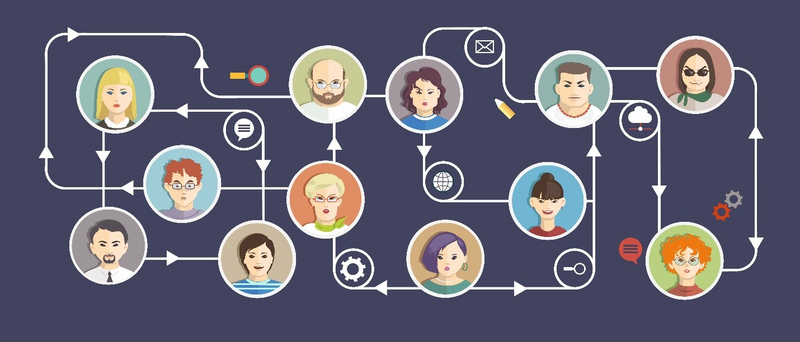ATD Blog
5 Networks Every Consultant Needs
Wed Jun 19 2019

As I work with other professional consultants launching their practices, many of them make a rookie mistake. I first noticed this early in 2004, when I started consulting at the same time as my friend Sam, who had similar skills and experience and was equally equipped to do this work. The only difference? Geography. I was living in the Midwest while Sam was living in a much larger metro area on the East Coast.
Off we went, each of us networking to launch our business. We would check in every few weeks to compare notes. We each devoted ample time, energy, and attention; we each experienced the thrill of thinking we were on to finding that first client, only to discover that finding that first client was harder than we had ever imagined.
Yet after a few months, our patterns diverged. I began to get engagements. But check-in after check-in was the same—Sam was meeting some interesting people but not selling any work.
Then it hit me. Sam was meeting only with people just like him. They were safe. The conversations were interesting. Often they were other consultants in the same space who were looking for similar work. And none of them were leading him to paying jobs.
Without a doubt, as an independent consultant, your network is one of your biggest assets. Yet the network you need is not measured by how many contacts you have, how many business cards are stacked on your desk, or how many LinkedIn connections you’ve amassed. It is measured by how many of the right connections you make and your skill at making those connections valuable for yourself and for the other person.
You may think that the right connections are those with potential clients—and you would be partially correct. But potential clients are only one of the five types of people you need in your network.
Here are five categories of individuals that I strive to include in my network:
1. Peers and coaches. While not always official or paid, these individuals help you do what you do better and better. They may share a new way to market yourself or send you a book on your area of expertise or teach you a new technique or approach or help you build your skills and your practice.
2. Connectors. There are people in this world who love nothing better than connecting the right people. They have a wide network. They have an intuition that tells them that you need to meet person “X”. They love to make introductions. When you find good connectors, value them!
3. Collaborators. Collaborators are individuals who are interested in working together; they see your work as additive rather than competitive. You’ll want to have a network that includes people who do what you do in the event you land a bigger project that requires more time or different skills than you can provide. You’ll also want to have some collaborators with complimentary skills, ones who may have need for the skills you offer in the projects they land.
4. Advocates. Everyone needs people in their network who sing their praises, who know what you do and are witness to how good your work is. They can be called on to be a reference for you, but they also spontaneously let others know they really need to talk to you because you are fabulous at what you do.
5. Clients (and potential clients). Of course you need to have people who would hire you in your network. Connectors and advocates and collaborators may get you in front of potential clients—or they may not. It is up to you to determine who your ideal client is, find where they can be reached, and bring them into your network.
A rich network that works for you will have a mix of all five categories--and not in equal measure, as advocates are most likely rarer (yet more valuable).
In evaluating the strength of your network, ask these questions:
Who is my ideal client? How many who fit my criteria are in my network?
What is the mix of individuals I have in my active network? Am I missing a category?
When I spend my valuable time networking, what categories am I cultivating?
Am I spending too much time in my comfort zone (most likely peers)?
In what ways am I showing up for those in my network? Am I willing to advocate? Connect? Collaborate?
A final word about networking: It is a two-way street. You ask what you can do before you ask others to do something for you. You share first and others will share in return. You mentor and others will teach you what they can. You support and others will support you. It is true that what you give, you also receive—not one-for-one, but in a bigger, more wondrous way. The most successful people I know are givers. So cultivate your network, and make it a broad one. Give to others and watch your influence expand and your practice grow.
You've Reached ATD Member-only Content
Become an ATD member to continue
Already a member?Sign In
